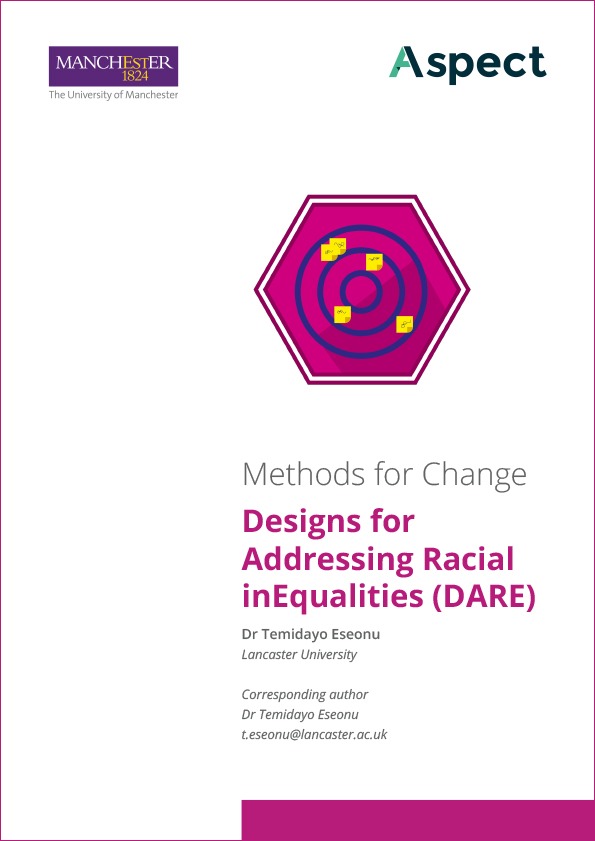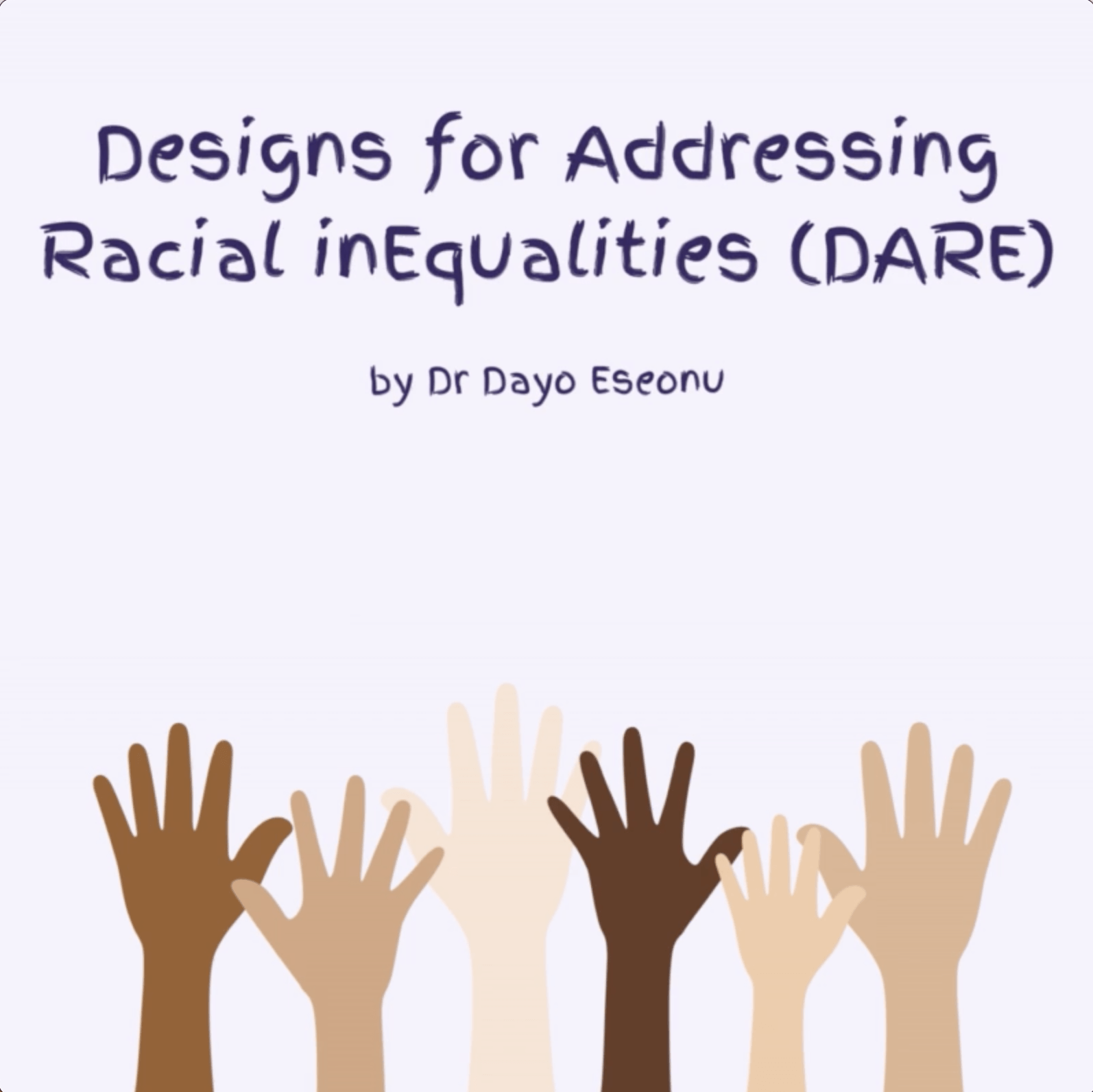Designs for Addressing Racial inEqualities (DARE) is a process through which policymakers and public services providers can co-create racially equitable services in a place. DARE focuses on the identification of interventions that highlight racially minoritised groups who are most in need to which power and resources should be distributed. Place could be a variety of spatial levels from the neighbourhood to city-regions. It involves four phases that are iterative, rather than a linear process. Critical to the DARE methodology is co-creation with a variety of stakeholders, a merging of lived experience, technical and bureaucratic knowledge to identify possible policy and service designs that seek to achieve racial equity.
DARE comprises four phases. The first phase is exploration, and it is about fact finding through involving communities, policymakers, service practitioners and relevant organisations within a place to understand how racial inequalities are produced and reproduced. Then the next phase is creation, which focuses on generating alternative options for policies and service design based on the ideas of those who are most affected by racial inequalities (ideas on what the problem is and what the potential interventions are). After that is the practice phase where stakeholders are brought together to reflect on the feasibility of the potential interventions, to identify challenges and risks including how these could be addressed and mitigated. The aim of this phase is to understand how to support successful implementation.
Lastly, the final phase is a pilot to allow for experimentation in the implementation of the new policy or the new service design. In this phase, bureaucratic processes are altered, and new ways of working are drafted to try and embed this alternative policy or service design. Evaluation of this pilot is essential to establish whether it works and what needs to change.
Download the Designs for Addressing Racial inEqualities (DARE) ‘how to’ guide.





